Turn any article into a podcast. Upgrade now to start listening.
Premium Members can share articles with friends & family to bypass the paywall.
Dear Reader (especially all you Mainers who recently found out you’re dead),
I just recorded an epic-length solo podcast after doing an hour-long TV hit at 6 a.m. This was after a crazy busy week that included a great but exhausting trip to Grand Rapids, Michigan, a slew of podcast appearances, TV and radio hits, and a failed quest for the head of Alfredo Garcia. The result: I’m fairly burnt out on punditry. I’ve had plenty of opportunities to talk about Nancy Pelosi, Dick Cheney (RIP), the New York City election, and whether the Heritage Foundation intends to invade Poland. Meanwhile, the one topic I wanted to focus on all week was the big hearing on tariffs at the Supreme Court. But everyone has already done the normal analysis of it. So, because it’s Friday and I feel wacky—and because I’m the co-founder of this company and I can say “you’re not the boss of me” to anyone who might object—I’m just going to have fun with this.
I’m not a lawyer. After all, I can see my reflection in mirrors. Every time I hear the word “estoppel” I have to look up what it means. I like jokes about lawyers, especially trial lawyers (Why did the lawyer cross the road? To slap the car accident victim awake and get him to sign a waiver!), but most jokes by lawyers sail over my head. (“Hey baby, are you an arbitrary and capricious decision? Because you’re making my heart skip the record.”)
But, increasingly, I do find the law more and more interesting. One reason for that is politics has gotten so stupid, so emotional and irrational, that arguing about it often feels like a waste of time. The currency of courtrooms, on the other hand, is still facts and logic. I’m not saying politics never enters the equation, but at least people try to keep it at bay. An argument that appeals to politics is considered inappropriate or irrelevant, like an argument at a chili cookoff about whether Trieste should be a free city.
Anyway, one of the concepts central to the legal arguments in the recent Supreme Court hearing over Trump’s use of the International Emergency Economic Powers Act (IEEPA) is “the greater includes the lesser.”
The phrase was only used once—by the solicitor general—but the idea was thick in the air.
Stories We Think You’ll Like
Against the Incel Republic
The marriage crisis should matter to all liberals, left or right.
Nuclear, Big and Small
The U.S. begins to build a next-generation nuclear future.
Dick Cheney: Statesman, Patriot, Principled Conservative
Reflections on the most consequential vice president in U.S. history.
I’ll do a non-lawyerly explanation. The White House argues that because IEEPA empowers the president to ban all trade with a country, it surely allows him to slap a tariff on goods from that country. A tariff is less than a ban, but it’s a power implied by the greater power. To paraphrase a line of questioning from Justice Samuel Alito: How can the president have the authority to prohibit all trade but not charge a penny-tariff on something—even if the law doesn’t use the word tariff at all? If Congress gave the president the ability to impose an embargo, Justice Amy Coney Barrett suggested it might follow that it also gave the president the ability “to use weaker medicine than completely shutting down trade.” That sounds kind of reasonable.
And it is kind of reasonable in the abstract.
I think this is a really interesting mental exercise. As I often say when ripping off mattress tags, let’s keep the law out of it. The idea that the greater includes the lesser (Omne majus continet in se minus) comes up in philosophy and theology a lot. “If almighty God can create the entire universe ex nihilo,” Thomas Aquinas argued, “surely he can make the New York Jets win the Super Bowl.”
Okay, I’m paraphrasing, but you get the point. So yes, obviously, the greater sometimes includes the lesser. If I say I can eat 50 eggs, as a matter of logic, I am saying I can eat 15 eggs.
But sometimes the logic doesn’t follow. Charging a machine gun nest takes immense courage, but the hero capable of doing that might chicken out when asked to honestly answer his wife’s query, “Does this dress make me look fat?”
In short, the greater includes the lesser is true when the lesser is in the same category as the greater. That may not be the case when we’re talking different categories.
So let’s talk about different categories.
Apples and things that rhyme with orange.
I’ve always had a problem with the phrase “apples and oranges.” People use it to mean extremely different things, but the truth is apples and oranges have more similarities than, well, a lot of different things: Aardvarks and baseball cards, hubcaps and Jell-O, dessert toppings and floorwax, etc. Both apples and oranges are fruits grown on trees. They’re both round and edible. You can use an apple or an orange to do that bit Don Corleone used to scare his grandkid and give himself a heart attack.
Anyway, if I say “I’ll bet you $10,000 I can eat 50 eggs,” you could collect an easy—and fun!—10 grand by bringing out 50 ostrich eggs and saying, “Prove it.”
Some category errors are as easy to spot as they are fun to imagine. The Pythagorean theorem smells like old socks. The number seven tastes like flan. I got 250 points on the SAT just for filling out the basset hound.
Some are slightly less Dadaistic but are nonetheless equally wrong. Boxing and baseball are both sports. But in one, you’re literally supposed to punch your opponent in the face, and in the other, punching your opponent in the face gets you kicked out of the game.
Some skill sets are really impressive and require massive IQs, but the transitive property doesn’t apply across categories. Nuclear physicists are brilliant, but that doesn’t mean any given nuclear physicist would be a good plumber, accountant, or football coach.
Other category mistakes are really seductive because they intuitively seem true—and may actually be in a metaphorical sense—but are in fact artifacts of our subjectivity. We might say “time flows,” but time doesn’t flow, events flow. There’s a truth to the statement, “Nature is cruel,” but nature is neither cruel nor kind. It’s just nature. Very strictly speaking, genes aren’t selfish, markets don’t “want” anything, government can’t be run like a business, America isn’t a family and the president isn’t our parent, taxes aren’t dues, energy isn’t wasted, evolution has no goals, history has no right side, violence does solve some things, but love doesn’t conquer all.
Okay, back to this tariff business. Again, IEEPA doesn’t mention tariffs. But it does say the president can, in an emergency, “regulate” or “prohibit.” Surely, regulating “tariffs” falls somewhere in the meaning.
It’s awfully late for me to introduce another legal principle, but try and stop me. Intent matters in the law. I won’t belabor the point because I think everyone understands this. Intentionally killing someone and unintentionally killing someone are different. The former may result in a dude ironically named Tiny eating the Apple Brown Betty off your tray in the prison cafeteria. One might even say intent is a categorical difference. Earlier this year, the Trump administration froze out the Associated Press from some events because it wouldn’t use “Gulf of America” to describe the body of water formerly known as the Gulf of Mexico. The AP sued and won—though the verdict is suspended on appeal —because while the president is free to exclude members of the press, he can’t do it solely based on the viewpoint or speech. It’s sort of like the Seinfeld episode when Jerry is told he can’t return a coat for “spite.”
The intent of IEEPA was to curtail, not expand, the president’s ridiculously sweeping power to impede, block, and otherwise screw around with trade under the old Trading with the Enemy Act of 1917—even during peacetime. The president was required to declare an emergency, after a thorough investigation with reports and finding and all that jazz, and after extensive consultation with Congress.
Under Trump’s interpretation, he can declare an emergency, pee in the cornflakes of Congress, and impose sweeping tariffs on the whole world. The emergency in question is the trade deficit—something that existed when Congress passed IEEPA in the first place. Trump’s lawyers have explicitly argued that the purpose of his tariffs is to raise massive revenues. Their brief quotes the president, “One year ago, the United States was a dead country, and now, because of the trillions of dollars being paid by countries that have so badly abused us, America is a strong, financially viable, and respected country again.”
Put aside the false claim that other countries are paying the tariffs—even Solicitor General D. John Sauer, after much frumfering, conceded that Americans mostly pay them. Heck, even Trump himself admitted just yesterday that Americans are “paying something.” Now, Sauer did insist that the administration doesn’t think the tariffs are taxes. “We don’t contend that what’s being exercised here is the power to tax. It’s the power to regulate foreign commerce,” he told the justices. “These are regulatory tariffs. They are not revenue-raising tariffs. The fact that they raise revenue is only incidental. The tariffs would be most effective, so to speak, if no—no—no person ever paid them.”
The difficulty of squaring this with Trump’s boasts about all of the revenue pouring into the Treasury, making us so strong, is just one reason I am not a lawyer. But I don’t think it matters. The Constitution explicitly gives the power to tax to Congress—the founders had very strong views about taxes, and tariffs are taxes. But just in case people refuse to believe that, that’s okay. Because the Constitution also gives exclusive authority to tariff and regulate commerce to the Congress as well. It’s a whole belt-and-suspenders thing.
I’m not going to get into all of that “major questions” and “non-delegation stuff,” but suffice it to say that Congress cannot simply give its powers to the executive branch. As Justice Neil Gorsuch asked, what if “Congress decides tomorrow, well, we’re tired of this legislating business. We’re just going to hand it all off to the president. What would stop Congress from doing that?”
Sauer had to admit that Congress really can’t do that. He also admitted that the next president could invoke a climate emergency and slap a tax—sorry, tariff—on foreign gas-powered cars. “It’s very likely that that could be done, very likely,” Sauer conceded.
So what does this all have to do with the greater includes the lesser stuff? Simply this: Tariffs and taxes are different than embargoes. They’re used for different purposes, and they fall into different categories. The idea that, in 1977, when Congress passed IEEPA, it intended to give up a huge chunk of its power to tax in a law intended to claw back powers granted during war in 1917 but abused during peacetime is simply preposterous. The administration is arguing that an attempt by Congress to lessen the president’s power is the basis for him to claim greater power than any president ever thought to use.
Speaking of war, the Congress also has the sole power to declare it (small solace to the boat passengers being blown up in the Caribbean). In wars, thousands of Americans can die. But when Congress grants the president the power to wage war, it doesn’t grant the president the power to shoot Americans for whatever reason he wants. Why? Because that greater power does not include that lesser power.
I’ve been arguing for decades that climate change is not the “moral equivalent of war.” Nor is poverty, inequality, illegal immigration, or any other national crisis, real or alleged, including trade deficits, for fornication’s sake. War is war.
On a host of fronts, Trump is trying to invoke war powers when we are not at war. Why? Because during wartime, the power of the president is never greater. By invoking that greater power during peacetime, he thinks he can grab all of the lesser powers, too.
And, legions of supposedly conservative constitutionalists are cheering him on. It will be fun to watch them change their tune when President Ocasio-Cortez uses the same trick after declaring a climate emergency.
Various & Sundry
Canine Update
I was away for a big chunk of the week, and the girls were not pleased about that. The fact that a whole bunch of folks in Grand Rapids asked me to say hi to them did not seem to mollify them much, alas. Every morning, I walk past the front door and see Chester and his fearsome gaze. People need to stop telling me to let him in. He does not play well with Gracie, and we pay the Chestergeld to keep him at bay. Gracie doesn’t like the cold weather too much, so much so that she’s slightly less demanding when it comes to the whole hose water thing and more demanding of human body heat. The dogs, however, love the fall weather. What they don’t love is Halloween. Wave after wave of small humans in scary garb ringing the doorbell and demanding treats fills the air with the canine version of L’enfer, c’est les autres. Even worse: canine costumes and baths. Pippa remains demanding of belly rubs in the morning, and Zoë remains even more demanding of sticking to protocol. But none can compete with Fafoon when it comes to being demanding.
The Dispawtch

Member Name: Paul
Why I’m a Dispatch Member: Been reading/following Jonah for 25 years (yes, we’re both f—ing old). Even volunteered to be his “submarine guy” when he was back with NRO. Still a Jonah fan, as well as a Kevin fan. But not so much an NRO fan anymore (that’s National Review Online, not National Reconnaissance Office). Love the thoughtful commentary on The Dispatch. A family member even was part of the team that rebuilt the website (way to go, Johnny!).
Personal Details: 20 years U.S. Navy, followed by 19 as contractor to one of the three-letter agencies.
Pet’s Name: Kona and Lani
Pet’s Breed: Golden Retriever
Pet’s Age: 2 1/2
Gotcha Story: A long time ago in a galaxy far away we went to see a Golden Retriever litter because our Aussie mix was depressed after the death of her co-canine. My wife picked out one. I said, “You know, we’re just going to go through this again when Casey dies” as I picked up another. Ever since, we’ve toggled between three Goldens, down to two, down to one, back up to three. This pic of Kona and Lani (Goldens No. 7 and 8) includes ZuZu, who was No. 6. First there was Bonnie and Clyde, then Jeter and Mattie (Don Mattingly), then Bailey and ZuZu (It’s a Wonderful Life), now Kona and Lani. (I wanted Jethro and Ellie Mae, but wife overrode!)
Pet’s Likes: Whatever it is that their sibling is playing with. Swimming pools. The sandbar at Lynnhaven Bay inlet in Virginia Beach. Ice cubes and apple slices. If you run the ice dispenser, they come running. They can hear the sound of an apple being sliced from any room in the house. Weird.
Pet’s Dislikes: Anyone ringing the front doorbell. Cats.
Pet’s Proudest Moment: When I picked them up from the breeder at 8 weeks old, I had a three-hour drive to get them home. They went into their crate, settled down, and slept the whole ride. That’s when I knew we’d picked two winners.
A Moment Someone (Wrongly) Accused Pet of Being Bad: Never happened. They’ve never been WRONGLY accused. But they have been bad.
Do you have a quadruped you’d like to nominate for Dispawtcher of the Week and catapult to stardom? Let us know about your pet by clicking here. Reminder: You must be a Dispatch member to participate.
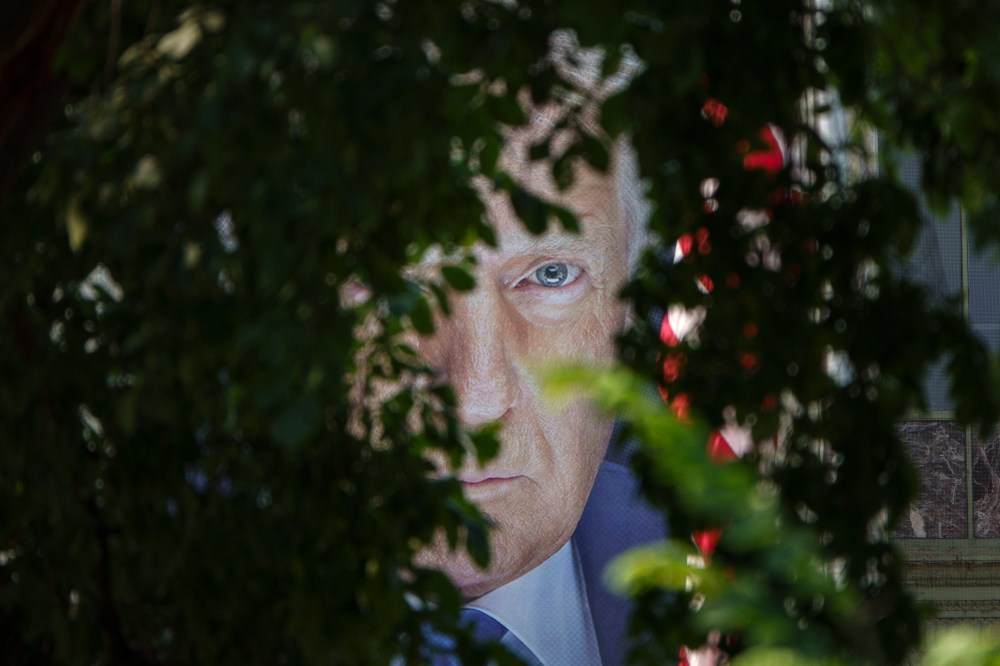




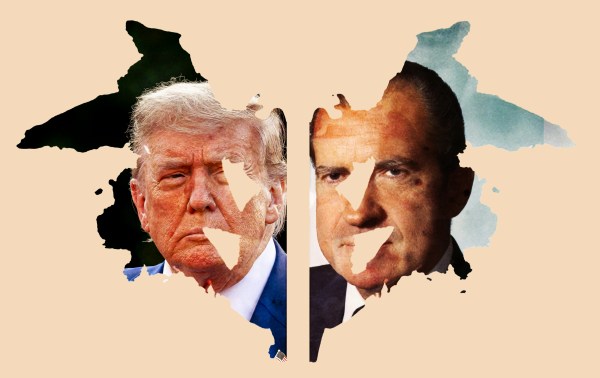
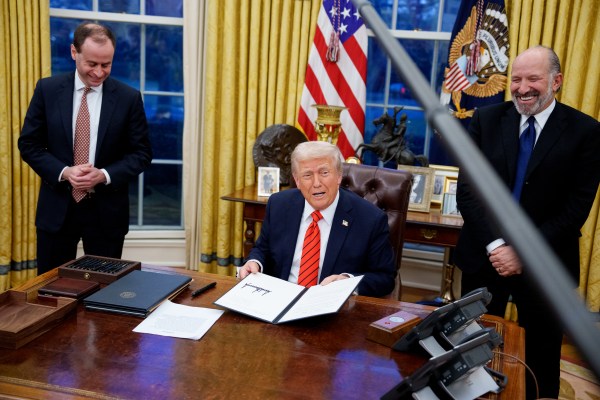

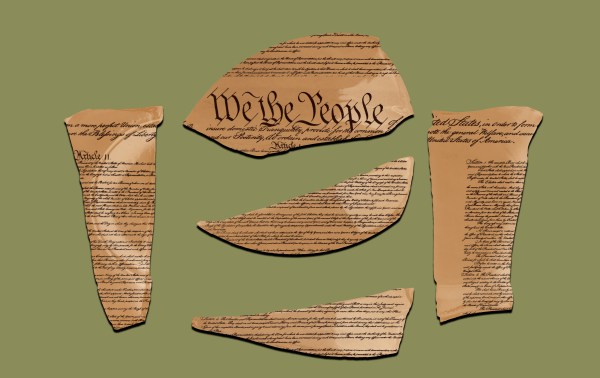
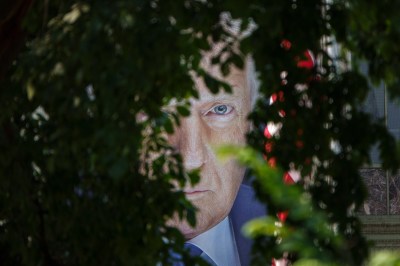
Please note that we at The Dispatch hold ourselves, our work, and our commenters to a higher standard than other places on the internet. We welcome comments that foster genuine debate or discussion—including comments critical of us or our work—but responses that include ad hominem attacks on fellow Dispatch members or are intended to stoke fear and anger may be moderated.
With your membership, you only have the ability to comment on The Morning Dispatch articles. Consider upgrading to join the conversation everywhere.